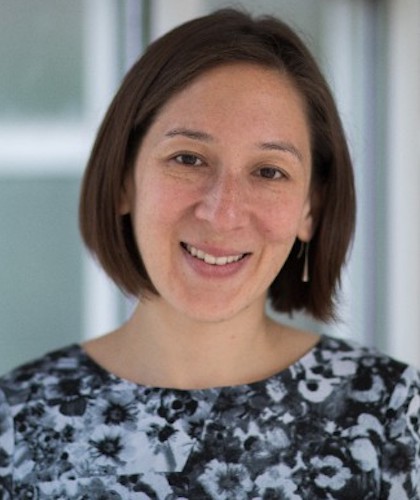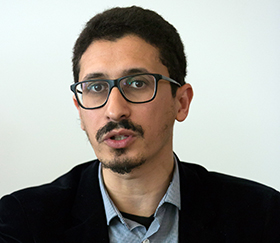Conférences invitées

Conférencier 1 : Owen Rambow
Date : mardi 1er juillet, 17h15
Session : Hommage à Laurence Danlos
Owen Rambow est Professeur au sein du Département de Linguistique de l’Université de Stony Brook, NY, USA. Il a obtenu son doctorat en 1994 à l’Université de Pennsylvanie sous la direction d’Aravind Joshi. Il a travaillé chez CoGenTex, puis au sein des laboratoires de recherche d’AT&T. Il a ensuite été chercheur pendant de nombreuses années à l’Université Columbia au sein du Center for Computational Learning Systems. Avant de rejoindre l’université de Stony Brook, il était chercheur chez Elemental Cognition, une entreprise spécialisée dans la compréhension approfondie du langage naturel.
Titre : La génération de texte en TAL des années 80 à nos jours : hommage à Laurence Danlos
Cette conférence contiendra un bref survol historique des recherches en génération de texte des années 80 à nos jours. En partant des travaux de Laurence Danlos, cette présentation s’attachera à décrire la complexité de la tâche et proposera des pistes de réflexion permettant de faire le pont avec les travaux de recherche actuels sur la génération de texte dans l’ère des grands modèles du langage (LLMs).

Conférencier 2 : Marine Carpuat
Date : mercredi 2 juillet, 09h00
Marine Carpuat est Associate Professor en informatique à l’Université du Maryland. Ses recherches portent sur le traitement automatique des langues et la traduction automatique. Auparavant, Marine a travaillé comme agent de recherche au Conseil National de Recherches Canada. Elle est titulaire d’un PhD en informatique et d’un MPhil en Génie Électrique de l’Université des Sciences et Technologies de Hong Kong, ainsi que d’un diplôme d’ingénieur Supélec.
Titre : Approches centrées sur l’humain pour une traduction automatique fiable
Les outils de traduction automatique (TA) sont désormais accessibles à tous. Mais comment aider les utilisateurs à s’en servir de manière fiable et appropriée, surtout s’ils ne comprennent pas l’une des langues source ou cible ?
Pour répondre à cette question, je commencerai par partager les résultats d’études utilisateur conçues pour comprendre les mécanismes de confiance et de dépendance des utilisateurs envers la TA (Mehandru et al. EMNLP 2023 ; Xiao et al. 2025). Je présenterai ensuite des approches pour fournir des retours sur la qualité des traductions qui mettent l’accent sur l’impact des erreurs. Cela inclut l’exploitation des grands modèles de langue pour poser et répondre à des questions (Ki et al. Findings of ACL 2025), ainsi que le développement de modèles de détection d’erreurs pour la traduction de la parole (Han et al. EMNLP 2024).

Conférencier 3 : Mohamed Chetouani
Date : jeudi 3 juillet, 09h00
Prof. Mohamed Chetouani is currently a Full Professor in signal processing and machine learning for human-machine interaction. He is the Deputy Director the Institute for Intelligent Systems and Robotics (CNRS UMR 7222), Sorbonne University (formerly Pierre and Marie Curie University). His activities cover social signal processing, social robotics and interactive machine learning with applications in psychiatry, psychology, social neuroscience and education. He was the coordinator of the ANIMATAS H2020 Marie Sklodowska Curie European Training Network (2018-2022). He was the President of the Sorbonne University Ethics Committee from 2019 to 2023. He was involved in several educational activities including organization of summer schools. He is member of the EU Networks of Human-Centered AI (HumanE AI NET) and Robotics (euROBIN). He was General Chair of ACM ICMI 2023. He is in charge of the inclusion of Students with Disabilities for the Faculty of Science and Engineering of Sorbonne University.
Titre : Communication in Action: Machine Learning for Socially Aware and Ethically Aligned Robot Behavior
This talk explores the emerging field of Communication in Action at the intersection of cognitive science, human-robot interaction, and machine learning. We begin by introducing how humans naturally combine instrumental and belief-directed actions—such as gaze, pauses, and exaggerations—to convey intent and support learning in others. We then examine how these insights inform how humans teach robots through demonstrations, instructions, and feedback. Special focus is given to models of social inference, with an emphasis on Bayesian Goal Inference as a foundation for interpreting communicative intent. We present recent work on pragmatic learning from pedagogical demonstrations in multi-goal settings, where robots must infer both task and teaching strategies. We also introduce our latest research leveraging vision-language models for user modeling and socially aware navigation. The talk concludes with a discussion on current limitations and future challenges in building machine learning models capable of understanding and producing communication in action. We also critically reflect on the ethical implications of these systems—particularly regarding the need for human-centered design. Ensuring that communicative robots act in socially appropriate and ethically aligned ways is not only a technical challenge but also a societal imperative as such systems become increasingly integrated into daily life.